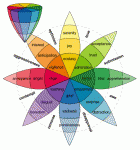 We hear alot about the roles logic and emotion play on the buyer side of commerce. They make purchase decisions emotionally and work to justify them logically seems to be the process we’re playing into.
We hear alot about the roles logic and emotion play on the buyer side of commerce. They make purchase decisions emotionally and work to justify them logically seems to be the process we’re playing into.
Logic and emotion exist on the seller side too.
Nearly every paid search account has keywords – sometimes a few sometimes a lot – that are not performing well based on objective performance criteria, and yet never get paused or even bid-reduced.
Ego Bidding and Beyond
These are keywords that we choose to exempt from the laws of the ppc jungle: deliver ROI or be paused. They include those we want to work (derivations of our brand, category terms we think important, etc), and those we think should work (variation on phrases that do work well, highly-specific words and phrases, etc.).
The reasons and philosophy could be discussed and argued all day. In any case, three steps are in order:
- Admit the Problem. There are poorly performing keywords in your account. That needs to be recognized and addressed. Until it is two things are true – you’re wasting money that maybe you don’t need to be wasting, and all your roll-up numbers and averages are even more questionable than they usually are (see ST 13)
. - Isolate The Poor Perfomers. To face the waste and improve the reporting in your account, move poor performers into their own campaigns and ad groups. This not nearly as easy as it should be, but it should be done despite the effort. The beneift is that you A) See the total spend that is non-productive. A nice big fat number that you have to accept or react to. B) All the campaign and ad group reports of your good keywords will be far more consistent, accurate, and actionable.
.
Note: AdWords Editor has cool drag/drop support that can be used to move keywords and text ads between ad groups. The next release of ClickEquations has dramatically improved Bulk features that make it pretty easy to move keywords and corresponing ads into any new or existing ad group too.
. - Fight or Concede. Some of the poor performing keywords will likely improve their performance significantly. They’re ego-bids or ‘branding’ efforts or whatever. Move these into their own campaigns and verify that you’re comfortable with that level of waste (economically speaking) and whatever drain on your account average quality score these keywords will produce. If there are a lot of them, with high impression counts, you may want to setup a 2nd AdWords account and move them there to avoid the quality score impact.
 Other poor performing keywords need to go to Rehab. They need a hot shower, a clean shirt, new friends, and 24×7 monitoring. Non-metaphorically, they need new text ads, better landing pages, more negatives, and perhaps better match type sculpting. All the stuff we discuss in all the other blog posts. The point is, work hard and find out how to make these keywords work. When they do, move ’em back into the regular campaigns and ad groups.
Other poor performing keywords need to go to Rehab. They need a hot shower, a clean shirt, new friends, and 24×7 monitoring. Non-metaphorically, they need new text ads, better landing pages, more negatives, and perhaps better match type sculpting. All the stuff we discuss in all the other blog posts. The point is, work hard and find out how to make these keywords work. When they do, move ’em back into the regular campaigns and ad groups.
How Bad is Bad?
The real question many will face is ‘what is the threshold for a poor performing keyword’? How bad is so bad that you need to mark a big ‘L’ on its forehead?
Let’s assume for the moment that you’ve settled on an intelligent revenue attribution model, and it’s not last-click 🙂
Pull data from a timeframe that is at least 2x your average purchase cycle. So if the average visitor converts within 21 days of their first visit (you know this number, right?), grab six-weeks of data.
- The first obvious candidate set is zero conversions and or zero revenue AND at least a modest spend or impression count. Modest is relative, but I wouldn’t worry much about keywords spending <$5 week or getting less than 20 impressions a week. (These are low numbers, for larger advertisers the noise thresholds would be much higher.). But meaningful activity and no results should clearly mean a trip to ad group Siberia.
. - The second set would be those with at least modest spend or impression count AND some revenue BUT negative ROI or ROAS. These are clear technical money losers. They need to be reconsidered and rehab’d or given up on.
. - The third set are those positive but not positive enough. These are most likely rehab candidates, but still deserving of their a seat at the kids table until they prove then can act like adults. How many metaphors can I squeeze into this post?
Separating Logic From Emotion
There are two reasons to do all of this.
The first is to group keywords by their economic value and your motivation for keeping them. As it says in the ebook, we all have brands to build and egos to maintain – it’s not surprising that we run some unprofitable keywords. Once grouped appropriately you can make (hopefully) better decisions and prioritizations or resources within your account.
The second is that after pulling away all the riff-raff, your profitable campaign and ad group reports will be vastly more clear and actionable. It may take some time to get used to the new sums and averages, but they’ll be more trustworthy and actionable. It may in fact be that after taking these steps you don’t immediately go to work on the losers, but instead polish your winners even more for a while.
But when you do get to them, my guess is you’ll apply less emotion, more logic, and wind up pausing more keywords, bidding less, fixing a few, and improving your overall results.
What Do You Think?
This blog post is part of a series extending and amplifying the ideas in our free ebook ’21 Secret Truths of High-Resolution PPC’.
What they’re saying: “Everything you know about AdWords is the basics Google wanted you to know. Just enough to get you hooked. But what if there was fundamental secrets that they neglected to share? Would you want to know them? Now you can! 21 Secrets Truths is what you must read, no, act on, before your competitors do.”
– Bryan Eisenberg Conversion Expert and New York Times Best-Selling Author ’.
Download Your Copy Today
.
.



